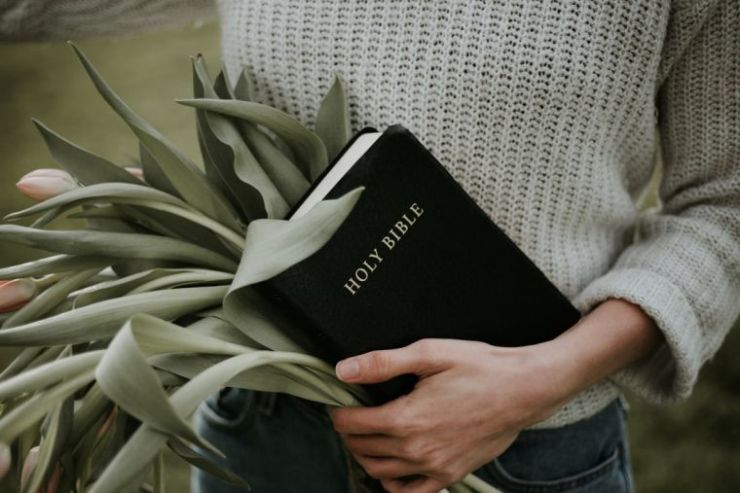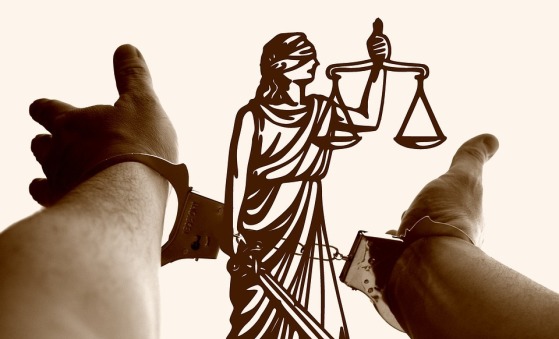
I feel constantly challenged by the ever-growing culture of political correctness that has taken root in our society. I found myself reflecting on this the other morning when listening to the former UK equality watchdog chief, Trevor Phillips, who has been suspended from the Labour Party over allegations of Islamophobia. Defending his track record, he declared that he stood by his previous assertions that Muslims were "different", adding: "The point is Muslims are different and in many ways, I think that is admirable."
Now I don't intend entering that treacherous jungle - I know how easy it is to be misunderstood and misquoted, and so I will make no judgment on the Trevor Phillips case. I simply mention it because I can't help thinking that Jesus would be delighted if something like this was said about His followers. The late and great Bible teacher John Stott made this abundantly clear in his very helpful commentary on the Sermon on the Mount when he writes, "The Sermon is built on the assumption that Christians are different and it issues a call to us to be different. Probably the greatest tragedy of the church throughout its long and chequered history has been its constant tendency to conform to the prevailing culture instead of developing a Christian counter-culture."
He's right. We can only be true to Christ and to ourselves when we seek to live like Him, and this will inevitably mean that we are seen to be different. And the Sermon goes on to show that those differences will be seen in very practical, down to earth ways too. Take Jesus' attitude towards materialism and possessions.
"What I'm trying to do here is to get you to relax, to not be so preoccupied with getting, so you can respond to God's giving," He said (The Message Translation). "People who don't know God and the way he works fuss over these things, but you know both God and how he works."
Like so many other Christians I have discovered just how liberating those words can be. If we get on with God's work, we don't have to worry about where the next meal is coming from or how we'll find the resources to do it. That's His job and my experience has shown me that He is very good at it too.
And then there is His emphasis on forgiveness. This approach certainly goes against the grain and challenges the way we instinctively feel we should react when someone hurts us or one of our loved ones. Now don't get me wrong. I am not minimising the pain or the cost involved when we face up to this kind of challenge. I have stood alongside someone whose face was stained with tears as she told a church congregation how she had discovered the strength to forgive the soldiers who had gang raped her sister and brutally bayonetted her father before abandoning them in a minefield. Thankfully they both survived but the trauma was unimaginable. Forgive she did and in so doing showed me just what we can do in the power of the Holy Spirit when we set out to do what Jesus asks us to do.
Perhaps most tellingly, given the coronavirus panic sweeping the globe, Jesus wants us to stand out as a people who see God as a loving Father who is always in control of everything that is happening to us. Don't babble on like pagans He says, your Father knows what you need before you ask Him. This is how you should pray "Our Father in heaven". Now I believe that when he said this Jesus was merely echoing the sentiments of the Psalmist who advised his contemporaries to stop and remember what God is capable of doing.
Like the ancient Israelites, we can be tempted to panic and wonder what the future holds for us, but whoever wrote Psalm 46 would encourage us to trust God whatever the problems that are facing us. Even Winston Churchill seems to have known something of this comforting presence, which is why he is reported to have said at the height of the war with Nazi Germany, "I sometimes have a feeling of interference, I want to stress that I have a feeling that some guiding hand has interfered."
I notice that the Prime Minister attended the England-Wales gladiatorial contest at Twickenham last Saturday and was seen shaking hands with fellow spectators in a clear attempt to show that normal life must continue. I applaud his efforts to instil a sense of calm at this nervous time, but the Psalmist would suggest that we should look to God too because He is always ready to help in times of trouble. It's that trust in God, come what may, that will make us "different" in all the right ways during this time of uncertainty.
Rob James is a Baptist minister, writer and church and media consultant to the Evangelical Alliance Wales. He is the author of Little Thoughts About a Big God.




